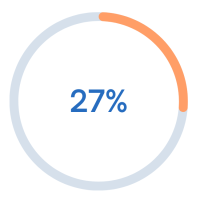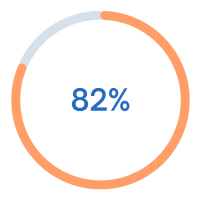Featured Insight
2025 Healthcare Outlook
Explore key insights driving the evolution of healthcare in 2025—from digital transformation and AI-powered solutions to patient-centered care models. Stay ahead with expert analysis and actionable trends designed to help you navigate the future of healthcare delivery.
As we navigate the evolving landscape of healthcare, Corteq Solutions remains steadfast in our commitment to innovation, resilience, and patient-centered transformation. Our vision for 2025 is driven by pragmatic solutions that remove barriers to care, enhance workforce efficiency, and create a more sustainable, outcomes-driven healthcare system.
In 2024, we witnessed a healthcare system at a crossroads. The industry faced unprecedented disruptions, exposing long-standing inefficiencies but also illuminating new opportunities for change. As technology advances, AI, automation, and data-driven insights are redefining how we deliver care, optimize operations, and empower healthcare professionals to focus on what truly matters—patients.
However, technology alone is not enough. We must challenge ourselves to reimagine policies, care models, and operational structures—not just to adapt but to lead. Historian Yuval Noah Harari once said,
“Creativity is often defined as the ability to recognize patterns and then break them.”
This is the challenge before us. Breaking long-standing patterns takes courage, foresight, and an unwavering commitment to progress. Whether it’s leveraging AI to reduce administrative burdens, expanding access through hybrid care models, or ensuring health equity through smart data utilization, we have a once-in-a-generation opportunity to build a healthcare system that works for everyone.
At Corteq Solutions, we believe this is our tipping point—the moment where bold leadership and transformative action will shape the future of healthcare. The path ahead requires collaboration, innovation, and a relentless drive to improve patient outcomes.
Let’s move forward—together.
Sincerely,
John Andreas
Healthcare Industry Lead
Corteq Solutions
Featured Insight
Healthcare in 2025: Navigating Transformation Through Innovation and Resilience
In 2025, the healthcare industry will be defined by a powerful blend of technology-driven advancements and person-centered care. Leaders face the challenge of driving growth and innovation while ensuring security, resilience, and sustainability in a rapidly evolving landscape.
Despite mounting pressures—from cybersecurity threats and climate crises to political and economic uncertainty—healthcare leaders remain steadfast in their commitment to long-term transformation. Their resilience and vision are crucial in navigating emerging risks while advancing solutions that shape the future of care.
Empowering Providers with Technology and Support
While provider burnout remains a significant concern, recent trends show promising signs of improvement. The rise of AI in healthcare is accelerating progress, offering new opportunities to streamline workflows, enhance diagnostics, and support clinical decision-making. However, as the industry embraces AI, it must also address complex ethical, legal, and financial challenges, ensuring that technology serves both providers and patients effectively.

The Future of Healthcare: Technology and Personalization Combined
Looking ahead, the convergence of AI, automation, and personalized care models will redefine healthcare experiences for patients and providers alike. We anticipate significant shifts in:
- Care Delivery Models: Blending virtual, in-person, and at-home care for greater accessibility.
- Reimbursement Strategies: Emphasizing outcomes through value-based care models.
- Operational Efficiency: Leveraging AI and automation to reduce costs and improve workflows.
A Healthier Tomorrow Through Innovation
The fusion of technology and human-centered care holds the key to revolutionizing patient outcomes and operational efficiency. By tracking emerging trends and adapting to shifts in care models and reimbursement structures, healthcare leaders can create a more sustainable, inclusive, and patient-focused healthcare ecosystem for the future.
Authors

John Andreas
Director, Healthcare
Ready to shape the future of your business?
Trends Driving Innovation, Efficiency, and Patient-Centered Care
Top Trends Shaping the Future of Healthcare
1. Delivering Hyper-Personalized Patient Experiences
Innovative technologies are enabling highly tailored treatments and seamless patient engagement, overcoming barriers like data privacy concerns and social inequalities.
Advancing Personalized Care with AI, Genomics, and Data Analytics
In 2025, AI-powered insights, genomics, and advanced data analytics are transforming how patients experience care—from preventive health management to critical care interventions. We harness these technologies to create personalized patient pathways, enabling targeted treatments that drive better health outcomes.
For instance, personalized medicine, supported by our AI-driven platforms and integrated data solutions, is reshaping treatment strategies, particularly in cancer care. Initiatives like the National Institutes of Health (NIH) $27 million investment in genomics-enabled learning health systems align with our mission to accelerate the integration of genomic data into real-world care delivery.
Overcoming Challenges: Data Integration, Consent, and Equity
Hyper-personalization is not without its challenges. Securing patient consent, protecting data privacy, and addressing health disparities are critical concerns. We tackle these challenges head-on:
- Unified Data Platforms: We break down silos and integrate patient data from multiple sources to provide a comprehensive, real-time patient view.
- Secure and Compliant Solutions: Our platforms are designed with built-in security frameworks to ensure data privacy and regulatory compliance.
- Health Equity Initiatives: We leverage AI to identify care gaps and ensure personalized treatments reach underserved communities.
Delivering Value Beyond Personalized Care
Hyper-personalization must go beyond buzzwords. We prove its value with measurable outcomes, such as improved care adherence, reduced readmission rates, and enhanced patient satisfaction. As Director of Health Cloud at Corteq Solutions emphasizes:
“True personalization means proactively engaging patients with tailored interventions that drive meaningful improvements in their long-term health outcomes.”
John Andreas
Director of Healthcare Cloud, Corteq Solutions
Corteq Solutions in Action: Real-World Impact of Hyper-Personalized Care
- Pediatric Care Transformation: Partnering with a leading children’s hospital, we implemented behavior-driven patient insights and a digital front-door experience that boosted patient engagement and care completion rates.
- AI-Driven Health Reminders: Collaborating with a major healthcare provider, we developed a clinical data integration platform that delivers personalized health prompts, significantly increasing preventive care adherence.
Shaping the Future of Patient-Centered Care
Hyper-personalization isn’t just about technology—it’s about people. By aligning advanced AI, real-time analytics, and patient-centric design, we are building a future where every healthcare interaction is meaningful, personalized, and outcome-driven.

Customer Story
5 minute read
Revolutionizing Healthcare with Generative AI: Enhancing Patient and Provider Experiences
Corteq Solutions partnered with Patient First to enhance patient engagement through AI-driven automation, predictive analytics, and personalized outreach. By leveraging AI-powered reminders and smart scheduling tools, the initiative improved appointment rates, reduced no-shows, and closed critical care gaps. Using AWS Healthcare AI solutions and machine learning, Patient First optimized patient interactions, ensuring proactive, value-based care. The results included a 32% increase in wellness visit bookings, 24% improvement in care gap closures, and an 18% drop in missed appointments. Moving forward, Corteq Solutions aims to expand AI-powered patient outreach, improving medication adherence, post-discharge follow-ups, and healthcare accessibility.
2. Revolutionizing Patient Access with AI-Powered Contact Centers
Artificial intelligence and integrated platforms are transforming contact centers, driving operational efficiency, and enhancing patient satisfaction with smarter, centralized systems.
we drive the future of patient engagement by transforming contact centers through cutting-edge AI technologies and integrated systems. Our solutions boost efficiency, reduce costs, and elevate patient satisfaction—all without losing the personal touch that patients value.
Navigating Complexity: Centralization Without Compromise
Healthcare organizations often face the challenge of merging multiple systems—especially in the wake of mergers and acquisitions—while striving to maintain a patient-centric approach. Patients want a seamless, efficient experience without losing the familiarity of local, personalized care. At Corteq Solutions, we help healthcare providers integrate systems into a unified framework that preserves local connections while ensuring a streamlined experience.
The Power of AI for Smarter Patient Engagement
By 2025, the landscape of healthcare contact centers will be redefined by AI-powered automation and intelligent routing systems. Corteq Solutions empowers healthcare providers with:
- AI-Driven Smart Routing: Directing patients to the right department quickly, optimizing call lengths, and reducing operational costs.
- AI-Powered Self-Service: Chatbots and virtual assistants handle routine inquiries, freeing agents for more complex patient needs.
- “Next Best Action” Guidance: Generative AI equips agents with real-time recommendations, enabling more personalized patient interactions.
Real-World Impact: Enhancing Outcomes Through Integration
Through our AI-driven solutions, healthcare providers achieve measurable results:
- Improved Patient Outcomes: Faster response times and personalized support lead to higher patient satisfaction and better CMS quality scores.
- Operational Efficiency: Integrated platforms reduce costs by streamlining workflows and optimizing agent productivity.
- Consistent Patient Experience: A unified system provides a single view of the patient journey across all touchpoints.
Balancing Efficiency with Empathy
While centralization improves efficiency, we understand that patients value familiar voices and local care experiences. That’s why Corteq Solutions offers flexible models, including hybrid approaches that combine local expertise with centralized support. This balance ensures that patients receive both personalized attention and efficient service.
Shaping the Future of Healthcare Contact Centers
The future of contact centers lies in merging technological innovation with human connection. Corteq Solutions helps healthcare organizations adopt AI, automation, and unified communication systems to transform patient interactions into opportunities for better care.
3. Unlocking New Opportunities Through M&A and Venture Capital
The healthcare industry is undergoing a transformative shift, driven by mergers, acquisitions (M&A), and venture capital investments aimed at enhancing efficiency, expanding patient access, and fostering innovation. As digital health and emerging technologies reshape the landscape, organizations must strategically position themselves to leverage consolidation for growth while mitigating financial and operational risks.
Key Market Trends Shaping M&A in Healthcare

Percentage growth in healthcare sector M&A activity, 2022 to 2023

Drop in digital health investment from peak in Q2 2021 to Q4 2022

US digital health funding in H1 2024 across 266 deals
As major healthcare players expand their influence, payers and providers alike face new challenges and opportunities. Companies like Epic and UnitedHealthcare are navigating the complexities of consolidation, while others, such as Oak Street Health, have faced operational difficulties post-acquisition. These trends emphasize the need for carefully planned M&A strategies integrating technology, enhancing data management, and ensuring seamless patient care continuity.
Navigating the Future of Healthcare Consolidation
Despite uncertainties, the momentum for M&A remains strong—particularly in provider networks and payer-driven acquisitions. For-profit health systems are accelerating their transaction pace, increasing competition, and placing pressure on smaller, regional hospitals. Looking ahead to 2025, technology and service companies are expected to play a key role in payer-driven acquisitions, enabling a more comprehensive approach to patient management and healthcare delivery.
The Evolution of Digital Health Investment
While digital health investments have slowed due to investor caution, strategic acquisitions continue to reshape the industry. Investors remain selective, prioritizing companies with scalable technologies, AI-driven efficiencies, and proven patient impact over speculative growth ventures. This shift presents an opportunity for organizations that integrate AI, automation, and advanced analytics into their M&A strategies to drive sustained value.
Technology as a Catalyst for Smarter M&A
To successfully integrate acquisitions and optimize post-merger operations, healthcare organizations must embrace AI-driven data management, interoperability solutions, and predictive analytics. Corteq Solutions empowers organizations to:
- Unify disparate systems for seamless post-merger integration.
- Leverage AI and automation to streamline operational workflows and enhance efficiency.
- Enhance CRM systems to optimize synergy realization, sales integration, and scalability.
Blending Innovation with Consolidation
M&A success isn’t just about growth—it’s about strategic alignment and operational excellence. Organizations that invest in advanced data strategies, automation, and digital transformation will not only enhance valuation but also create a smoother, more scalable post-acquisition environment.
With Corteq Solutions, healthcare organizations can turn M&A challenges into opportunities—driving efficiency, expanding patient access, and unlocking new market potential.
4. Strengthening Cybersecurity and Operational Resilience
The surge in ransomware attacks and IT disruptions has exposed critical vulnerabilities in healthcare infrastructure, emphasizing the need for proactive, multi-layered defense strategies. From crippling cyberattacks on major providers to rising costs of data breaches, organizations must rethink their approach to cyber resilience, risk management, and business continuity planning.
Key Cybersecurity Threats Impacting Healthcare

Individuals affected by the Change Healthcare cyberattack of 2024.

Data breaches of 500+ records in H1 2024, an 8.4% increase from the previous year.

Average cost of a healthcare data breach, a 53% increase since 2020.
Despite these rising threats, many healthcare organizations remain vulnerable, often relying on outdated disaster recovery plans and underestimating the importance of continuous testing, cybersecurity hygiene, and cloud security governance.
Beyond IT: A Holistic Approach to Cyber Resilience
It is a common misconception that disaster recovery is solely an IT responsibility. In reality, cybersecurity and resilience require a cross-functional strategy that integrates:
- Business continuity planning – Ensuring minimal disruption during an attack.
- High-availability infrastructure – Reducing downtime and maintaining operations.
- Cloud security governance – Addressing risks in shared responsibility models.
- Proactive threat monitoring – Leveraging AI-driven security analytics for real-time defense.
Many organizations fail to recognize that cloud providers offer the tools but don’t manage security for them—making it essential for healthcare leaders to take control of their security configurations, compliance, and ongoing risk assessments.
Corteq Solutions: Enabling a Resilient and Secure Healthcare Future
To fortify defenses and ensure business continuity, healthcare organizations must invest in:
- Advanced threat detection and AI-driven risk mitigation.
- Robust backup and recovery solutions to withstand cyber incidents.
- Comprehensive disaster recovery testing to eliminate weak points.
Cyber threats aren’t just a possibility—they’re an inevitability. With Corteq Solutions, healthcare organizations can safeguard operations, protect patient data, and build a resilient security posture that withstands evolving cyber risks. By continuously refining security strategies, businesses can stay ahead of threats and ensure uninterrupted patient care—no matter what challenges arise.
5. Shifting Focus from Sick Care to Well Care
The healthcare industry is shifting from a reactive “sick care” approach to a proactive “well care” model, emphasizing preventive measures, early interventions, and holistic wellness over costly medical treatments. This transformation is driven by technology, personalized care models, and data-driven insights, ensuring better health outcomes while reducing long-term costs.
The Growing Wellness Economy

Global wellness market, reflecting increased demand for preventive healthcare.

U.S. wellness economy, positioning it as a leader in proactive health initiatives.

The U.S. wellness market is twice the size of China’s, highlighting its rapid expansion.
“True health is a balance of physical, mental, and social well-being—not just the absence of illness, but the presence of vitality and quality of life.”
— World Health Organization
Source: The Global Wellness Institute, the leading nonprofit research organization for the global wellness industry.
Embedding Wellness into Healthcare Strategies
Wellness initiatives, once considered peripheral, are now integral to healthcare plans and provider strategies, particularly within value-based care models. Programs focused on extending “health spans” rather than just lifespans are leading the way, emphasizing preventive care, physical therapy, mental health, and chronic disease management.
For instance, companies like Athletico are demonstrating how physical therapy can prevent costly surgeries, reinforcing the effectiveness of proactive health interventions. Similarly, programs like SilverSneakers encourage senior fitness and mobility, reducing long-term healthcare costs while enhancing quality of life.
Technology-Enabled Preventive Care: The Future of Wellness
For healthcare organizations, embracing proactive health and lifestyle medicine presents a unique opportunity to:
- Reduce risks and lower per-member costs by preventing chronic conditions before they escalate.
- Improve patient convenience with telehealth and remote monitoring for better access to care.
- Empower individuals with personalized wellness plans, incorporating AI-driven insights for optimal health outcomes.
Corteq Solutions is at the forefront of this transformation, leveraging AI, predictive analytics, and integrated data platforms to create scalable, personalized healthcare solutions. Our approach aligns electronic health records (EHRs), lifestyle data, and genomic insights to build tailored care strategies that optimize mental, physical, and emotional well-being.
Overcoming Challenges: The Need for a Holistic Approach
While proactive healthcare offers long-term benefits, successful implementation requires seamless data integration, AI-powered analytics, and reimbursement models that support preventive care. Healthcare systems must:
- Unify electronic health records with lifestyle and behavioral data for deeper patient insights.
- Adopt AI-driven analytics to develop customized wellness plans based on genetics, environment, and health history.
- Bridge care gaps with telemedicine and digital health tools, ensuring accessibility and engagement.
A Healthier, More Sustainable Future with Corteq Solutions
With the right technology and patient-focused strategies, the future of healthcare is proactive, personalized, and prevention-driven. By harnessing AI, automation, and patient engagement tools, Corteq Solutions enables healthcare organizations to move beyond traditional reactive care models—leading to better health outcomes, reduced costs, and an enhanced patient experience.
Together, we are shaping a future where healthcare is not just about treating illness but preventing it—ensuring longevity, wellness, and a better quality of life for all.
6. Enhancing Care Delivery with AI and Automation
The integration of artificial intelligence (AI) and automation is revolutionizing healthcare by reducing administrative burdens, streamlining operations, and allowing providers to prioritize patient care over paperwork. As healthcare organizations continue to modernize workflows, leveraging AI-driven solutions is no longer an option—it’s a necessity for improving efficiency, patient satisfaction, and cost-effectiveness.
AI’s Impact on Healthcare Operations

of executives believe AI will positively transform the healthcare industry.

of organizations are already experiencing productivity gains with Generative AI.

plan to increase AI investments in 2025, ensuring continued innovation.
$100M
in government funding was unlocked for a national healthcare payer using AI-powered “no-touch” ingestion capabilities.
Eliminating Administrative Overload and Physician Burnout
Despite the importance of regulatory compliance, healthcare providers face overwhelming administrative tasks, often diverting their attention from patient care. Requirements such as HEDIS, Medicare STARS, and NCQA add layers of complexity, with coding, claims processing, and appeals workflows consuming valuable time. 58% of physicians cite administrative burden as a top cause of burnout, further highlighting the need for automated solutions.
With AI-driven automation, healthcare organizations can:
- Reduce administrative workloads by up to 30%, freeing up time for patient interactions.
- Utilize AI-powered medical scribes to transcribe notes and streamline documentation.
- Leverage virtual assistants to schedule appointments and enhance patient engagement.
- Improve claims management and fraud detection, accelerating reimbursement processes.
Corteq Solutions: Powering the Future of AI-Driven Healthcare
The future of healthcare demands intelligent automation, enabling organizations to:
- Enhance operational efficiency through AI-powered workflow optimization.
- Reduce costs and administrative delays with real-time data processing.
- Improve provider satisfaction by shifting focus from paperwork to patient care.
By adopting AI and automation, healthcare organizations can reduce inefficiencies, enhance patient outcomes, and drive a more sustainable, patient-centered healthcare system.
With Corteq Solutions, providers can embrace the next era of healthcare innovation, where technology empowers smarter decision-making, seamless workflows, and improved patient experiences. The goal for 2025 and beyond is clear—minimize administrative complexity, maximize care quality, and revolutionize healthcare through AI-driven automation.
7. Mastering the Shift to Value-Based Care
Payers and providers are refining their strategies to succeed in value-based models, prioritizing quality outcomes, preventive care, and cost efficiency over traditional fee-for-service models.
Shifting from volume-based to value-based care is redefining healthcare delivery—where outcomes, quality, and patient experience take center stage. Success in this model requires providers and payers to go beyond risk adjustments and embrace a holistic approach to care.
Innovative care models prioritize patient outcomes, but challenges such as CMS Medicare Advantage setbacks highlight the complexities of value-based care. True progress demands seamless collaboration between payers and providers, supported by real-time data sharing that empowers healthcare professionals with actionable insights. Modernized data systems and streamlined workflows are critical to reducing administrative burdens and allowing providers to focus on delivering high-quality care.
“Healthcare should be viewed as a lifelong journey—from fostering healthy habits and preventive care to ensuring dignity in aging and end-of-life care.”
John Andreas
Director of Healthcare Cloud, Corteq Solutions
Empowering Providers, Elevating Care
The shift to value-based care isn’t just about patients—it’s also about improving the provider experience. Simplified payer operations, reduced friction, and efficient reimbursement models are crucial. Notably, 75% of payers anticipate continued growth in value-based care models, emphasizing the importance of reducing provider burdens to drive success.
The Future of Value-Based Care: Integrated, Insight-Driven, and Patient-Focused
Achieving meaningful outcomes requires:
- Advanced Data Analytics: Providing real-time insights for informed decision-making.
- Seamless Integration: Connecting payers, providers, and patients with interoperable systems.
- Patient Engagement: Empowering individuals to take an active role in their health journey.
By investing in tools that support both providers and patients, the healthcare industry can unlock the full potential of value-based care—boosting efficiency, improving experiences, and delivering truly personalized care. Together, these efforts pave the way for a healthier, more sustainable future.
8. Expanding Access Through Virtual and At-Home Care
The integration of telehealth with in-person care is making healthcare more accessible and convenient, enabling continuous patient monitoring and support beyond traditional settings. Healthcare no longer belongs solely within hospital walls—healing happens anywhere, anytime. Blending virtual care with in-person services is revolutionizing patient experiences, and making healthcare more accessible, affordable, and effective.
The shift to home-based care is gaining momentum, driven by the success of telehealth, urgent care centers, and mobile health services. Leading health systems are embracing this trend, showing that remote care reduces costs and improves outcomes. Policies enabling telehealth, such as those introduced during the COVID-19 pandemic, continue to gain bipartisan support, underscoring the potential for lasting change.
“Delivering care at home is key to expanding access, reducing costs, and driving better outcomes. Organizations that master this balance can unlock tremendous opportunities for impact and growth.”
John Andreas
Director of Healthcare Cloud, Corteq Solutions
Overcoming Barriers to At-Home Care
Expanding healthcare beyond traditional settings requires overcoming critical challenges:
- Integrated Care Pathways: Seamlessly combining virtual and in-person care for continuity.
- Scalable Reimbursement Models: Aligning payment structures with new care delivery methods.
- Technology-Driven Operations: Using AI and IoT to monitor patient health remotely.
Building the Future of Home-Based Care
Achieving this transformation demands strategic investment and operational excellence. A hub-and-spoke care model, combining local clinics with virtual services, can increase rural access, reduce patient travel burdens, and improve overall flexibility.
What’s Next in Home Care Innovation:
- Virtual Care Days: Reducing in-person visits through remote diagnostics and consultations.
- Smart Staffing Models: Balancing virtual support with on-site providers for optimized care delivery.
- Tech-Enabled Mobile Care: Bringing back the traveling doctor concept with modern technology.
Organizations that invest in digital transformation, staffing models, and reimbursement innovation will not only meet patient needs but also drive market growth and care equity.
The future of healthcare is here—closer to home than ever before.
Reimagining Healthcare Through Innovation and Impact
Bold innovation, holistic solutions, and patient-centered care are driving the future of healthcare. In 2025, disruption brings opportunities to break barriers, reduce administrative burdens, and create a resilient, accessible healthcare system for all. Combining values with cutting-edge technology unlocks new ways to improve outcomes and experiences.
Healthcare leaders need solutions that are data-powered, technology-enabled, and outcome-focused. By integrating AI, automation, and advanced analytics, providers can streamline operations, reduce costs, and enhance patient engagement—all while staying adaptable in a rapidly changing landscape.
Collaboration, creativity, and technology are key to solving the industry’s toughest challenges. From digital transformation to patient experience design, pragmatic solutions can drive measurable impact without losing the human touch.
With Corteq Solutions as a partner, healthcare organizations can navigate change, embrace innovation, and deliver care that truly matters. Together, we can redefine the future of healthcare—driven by insight, technology, and a shared commitment to better outcomes.
Stay Informed, Stay Ahead
Our healthcare stories & insights
Let’s Transform Healthcare
Together
Collaboration drives innovation—and together, we can tackle healthcare’s most complex challenges. From enhancing patient outcomes with AI-powered insights to streamlining care delivery through advanced digital solutions, our combined expertise can create a lasting impact.
Empower your healthcare journey with solutions that:
- Improve Patient Experiences: Deliver personalized, data-driven care pathways.
- Enhance Operational Efficiency: Reduce costs with automation and integrated workflows.
- Advance Care Innovation: Harness the power of AI, IoT, and cloud technologies for smarter care delivery.
Let’s shape the future of healthcare—together.

Corteq Solutions is a cutting-edge consulting firm specializing in innovative, technology-driven solutions that empower organizations to achieve transformative growth and operational excellence. We deliver strategic insights and tailored services to drive efficiency, scalability, and sustainable success.
Quick Links
Consulting Service
Our Locations
Australia
Canada
Pakistan
United Kingdom
United States
Newsroom
Get the latest news and updates about Corteq Solutions.
